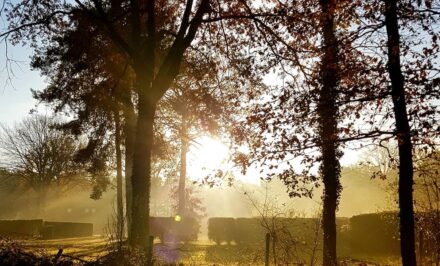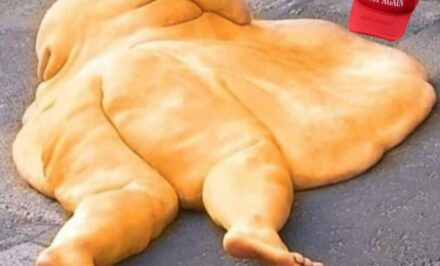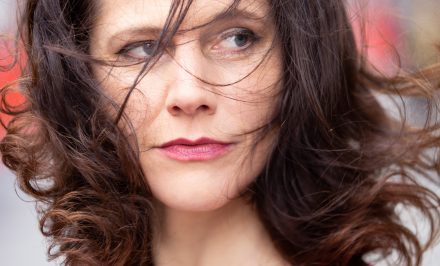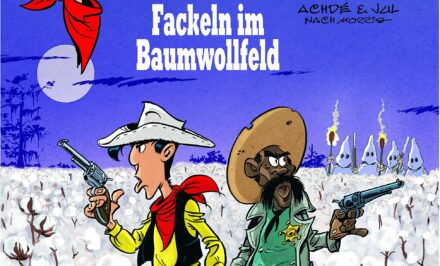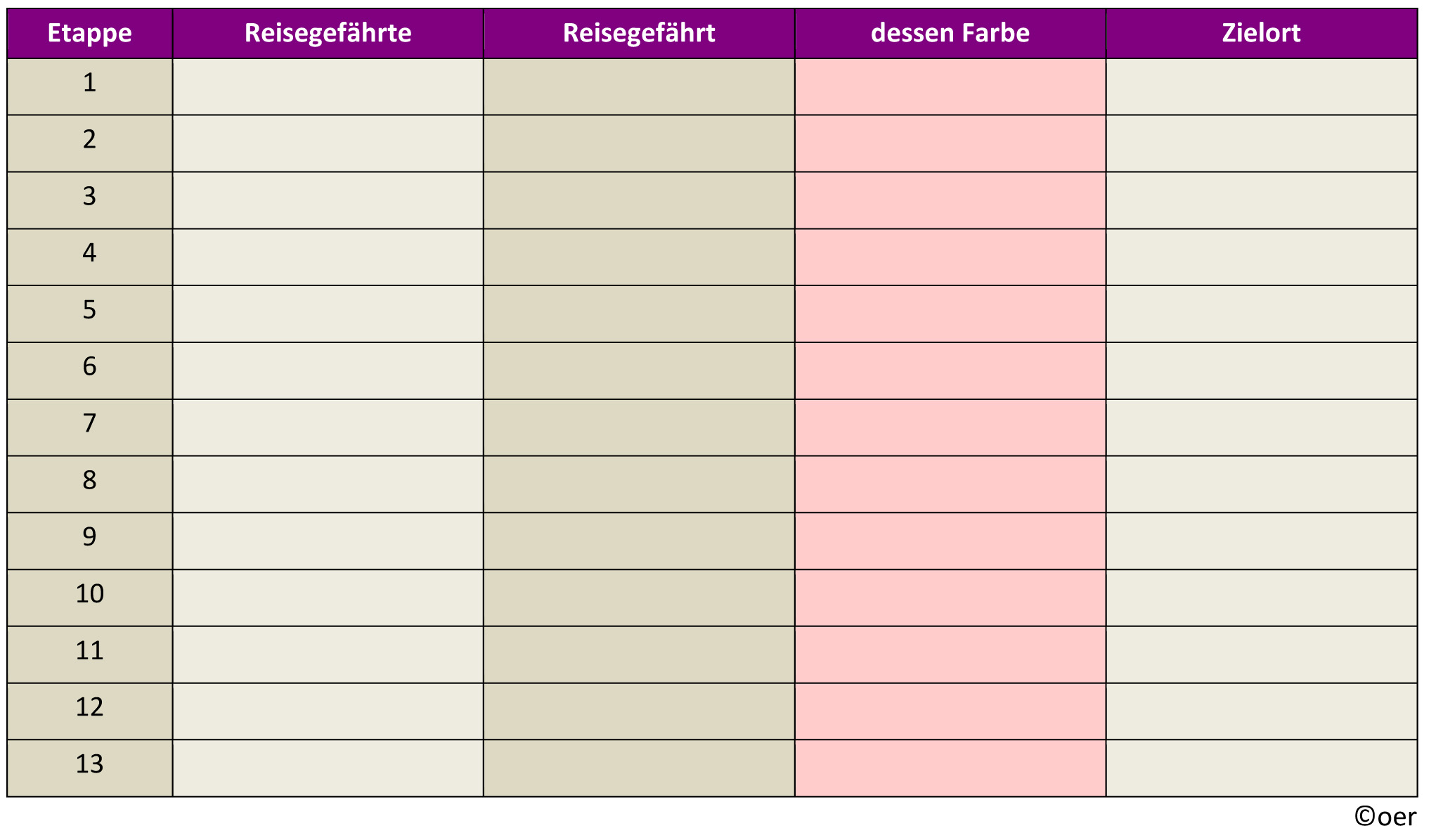James Lee Burke
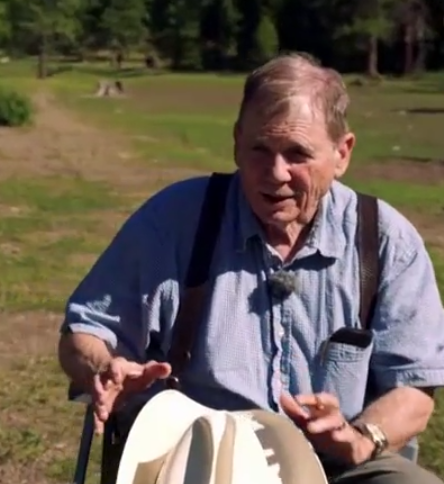
These are depressing times, but I would like to share with you some memories and lessons I always found helpful in dealing with what Gram Parsons called „In My Darkest Hour.“
I remember how frightened I was when, on December 7, at 1:15 P.M., a radio music program was interrupted in the little cafe where I was eating Sunday dinner with my parents. A news broadcaster informed everyone the Japanese had just bombed Pearl Harbor. No one moved or spoke, as though they were inside a motion picture film and the projector had frozen the image on the screen. When a child sees fear in the faces of adults, the fear transfers to him like a contagion, magnified many times.
But I learned a quick lesson about the country I was born in. Men and women all over the nation stood in long lines to volunteer for the armed services. Every week President Franklin Roosevelt had one of his Fireside Chats with over one hundred million people, assuring us that the only fear we needed to fear was fear itself. Food and gasoline were immediately rationed, but no one complained. My family’s ration book allowed us one small chicken and one small roast a week. It was impossible to buy sugar or butter. In four years I saw only one instance of hoarding, A man down the street was caught with a garage full of canned goods and and fined heavily. He also lived the rest of his life in disgrace.
We had other problems as well. My family lived in the polio capitol of America. Nobody knew what caused it or the origins of the virus. At age eight I spent almost one year in bed with perhaps a case of polio or perhaps rheumatic fever or perhaps both. Diagnostic medicine was often based on speculation and was nothing like it is today. But I felt very sick and lived in fear of diseases that had control of my body, but could not be confronted or medicated or even adequately defined.

After I was better, my best friend and I went from house to house towing a red wagon, asking both strangers and our neighbors for their old newspapers, unwanted coat-hangers, rubber-bands, and bacon grease. We took the newspapers and coat-hangers to our local firehouse where we dumped them inside a red-white-and-blue picket enclosure. The balls of rubber bands were turned in at the grocery store and so were the jars of kitchen grease (the latter was used to make nitroglycerin).
People dropped rifles,shotguns, and pistols into donation barrels at the biggest sporting goods store in the city so they could be shipped to England in advance of what everyone believed would be a German invasion. (The invasion never happened, but the Brits have never forgotten the gesture.)
Wake Island and the Philippines fell, and many nights we had air-raid exercises and blackouts. Rumors spread about inflammable (that’s the way the word used to be spelled and it still remains the correct spelling) materials that the Japanese sowed in American cities; supposedly they would burst alight when a child picked one up. There were riots on the West Coast, and many innocent American-born Japanese had their businesses and homes vandalized, and eventually many thousands were sent to „internment“ camps by FDR, who in so doing besmirched his long history of compassion and decency.
But in those dark days we began to hear names of great heroes who came from humble origins and the kinds of neighborhoods that most Depression-era Americans lived in. Colin Kelly went down in flames attacking the entirety of the Japanese Air Force. Audie Murphy, five-foot-five, who went to the sixth grade, stayed on top of a burning tank working a fifty-caliber with half his hip shot away, thereby saving his whole regiment.
In 1942 American troops were wading onto the sands of Guadalcanal. Jimmy Doolittle bombed Tokyo with B-25s that no one thought could fly from a carrier. At Midway navy and marine fighter pilots sank four Japanese carriers, a solitary event that decided the outcome of the war.
At home, the unity and love of our country was probably like no other time in our history. We knew we were on the side of right, and if we failed, that the light of civilization would die forever.
We’re faced now with a situation that bears many similarities to the war years in which I grew up, and for that reason I think we need to remind ourselves of who we are. In 1945 we were the only country in the world in possession of atomic weapons. We could have turned the earth into a slave camp with barbed wire and machine-gun towers. Instead, through the Marshall Plan, we rebuilt the countries of our enemies and turned them into democracies. No country in human history ever acted with such generosity.
There is no mystery to who people are. They are what they do. We are the same people we were when I was pulling the red wagon with my best friend, whose name was Tommy Kroutter. We don’t let fear into our hearts; we do not turn on our brother or our sister; we do not shirk sacrifice; we do not compromise our role as the leader of the free world, or as the country whose Constitution is the model for every emerging democracy on earth.
This is still the greatest country in human history; it was, it is, and it will remain so, and don’t let anyone tell you otherwise.
Keep the faith, and grin and walk through the cannon smoke. It drives the bad guys crazy. You’re the best people in the world.
Best to all of you,
Jim
With kindly permission from the author. Articles about and from him here in CrimeMag.
Willam Boyle: Quarantine, Day 18
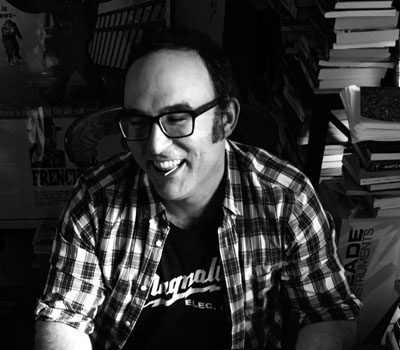
Day eighteen of quarantine here. I wake up early to write and try to stay away from checking the news–at least for a couple of hours. My wife and kids have been sleeping a little later, until about eighty-thirty or nine, so I’ve been getting some work done. The rest of the day is a balance between schoolwork for my kids, teaching my classes online, reading, watching movies, listening to music, and getting outside to run or walk. I grew up in Brooklyn, New York, but I live in rural Mississippi now, on the edge of Oxford out in the country, so it’s very quiet and serene. No cars. Deep woods behind us. My wife and kids have been gardening a lot, playing with our dog, feeding the chickens. After getting work done, I usually settle into feeling some steady mix of dread and panic about the pandemic as I start to let the day’s bad news trickle in. It’s difficult to think about anything else. Mississippi hasn’t been that hard hit yet, but it’s only a matter of time. I’m mostly very worried about my mother in Brooklyn. New York is currently the epicenter here in the states. Bad getting worse. She’s a manager at a doctor’s office and was working steadily until about nine days ago. I’m also worried about so many other friends and family members in New York. My wife’s mom, who is almost eighty. Her sisters and brother. My wife’s cousin, who we lived with for a couple of years, is on the frontline at a Bronx hospital. I’m lucky to be surrounded by optimists because I’m pessimistic by nature and I’m numbed by the many ways this could get worse and worse. In the meantime, I have a new book out. By chance, I’d decided not to do a tour–I was burned out on travelling so much over the winter and wanted to stay home. The Catholic kid in me says it’s okay to ignore the horror and pretend like everything is normal. That’s what I grew up with. Keep your turmoil to yourself. Write about it, sure, but don’t talk about it publicly. Not a good way to be in terms of mental health, trust me. So, I’m doing interviews about my book and sharing playlists, the stuff I’d normally be doing, in an effort to push away reality. I’m talking about movies and books and music. That’s what I’ve always done–it’s the only way I know to deal with terror. I’ve been rereading Pete Hamill and Hubert, Selby Jr.–I think it’s a way of making myself feel like I’m home in New York. For the past decade, I’ve felt strange about not living there. I identify so heavily as a New Yorker–it’s all I write about. Now, being away from New York during a crisis, feels especially wrong. I should be experiencing this collective fear and grief there. I’ve been thinking about the Abel Ferrara film 4:44 Last Day on Earth a lot. In that film, faced with an apocalypse, an artist couple just does what they always do–they talk and fight and fuck. They live. Truth be told, aside from the worry and dread, life in my house hasn’t changed a ton. We’ve got these books, this music, these movies, the dog, each other, and we’re pretty damn lucky and happy. Not going anywhere is the small part we must play. It’s just the great uncertainty, the knowledge that this is crawling everywhere, invisible, and could strike someone we love soon that’s so hard to live with. -William Boyle
In den USA ist William Boyles Buch „City of Margins“ Anfang März erschienen. Im deutschsprachigen Roman erscheint „Eine wahre Freundin“ im Juni im Polar Verlag. Dort sind auch seine bisherigen Bücher erschienen. Eine Besprechung zu „Gravesend“ findet sich hier.

